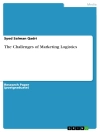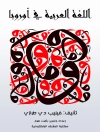We live in an era of experimentation – both if we look at the broader social world of politics, media and art and at the narrower context of academic knowledge production. This collection consists of 14 chapters by leading scholars in affect studies. They explore the affective dimensions of experimental practices related to, for example, activism, the COVID-19 pandemic, populism, sustainability, patient communities, music streaming, Jamaican dancehall, gangs, leadership, tourism and minority youth cultures. Experiments are understood as intentionally crafted milieus aimed at (re)presenting unnoticed aspects of the world, as non-linear processes with unpredictable outcomes, and as ways of giving the future a provisional form. The collection responds to a pressing need to understand the intersection between affect, experimentation and sociocultural change by offering empirical strategies to explore how, and with what consequences, experimentation is affective.
Tabela de Conteúdo
1. Introduction: Methodologies of Affective Experimentation.- 2. Affect as Disruption: Affective Experimentation, Automobility and the Ecological Crisis.- 3. Populism as Para-politics: Play, Affect, Simulation.- 4. Interspecies pedagogies: More-than-Human Experiments with Leadership in/of the Anthropocene.- 5. Engines of Affect: Experimenting with Auditory Intensities in the Jamaican Sound System Session.- 6. Experimentation in and with the Stream: Music, Mood Management and Affect.- 7. Experimentations in Pandemic Boredom.- 8. Worlding with Glitter: Vibrancy, Enchantment and Wonder.- 9. Affective Writing Experiments.- 10. Problematising Shame: Affective Experimentation on Social Media.- 11. Affective Experiments: Card Games, Blind Dates and Dinner Parties.- 12. Wind as Elementary Attraction: Case: An Avant-Garde Experiment on the West Coast of Jutland, Denmark.- 13. The Tombstones that Cried the Night Away: An Allegory.- 14. Activating limit as method: An affective experiment in ethnographic criminology.
Sobre o autor
Britta Timm Knudsen is Professor of Experience Economy at the School of Communication and Culture, Aarhus University, Denmark. She has published on difficult heritage, cultural studies, affect theory and methodologies. Recent books and edited collections include Decolonizing Colonial Heritage (2021), Global Media, Biopolitics, and Affect (2015), Affective Methodologies (2015), Enterprising Initiatives (2014) and Re-investing Authenticity (2010).
Mads Krogh is Associate Professor of Popular Music Culture at the School of Communication and Culture, Aarhus University, Denmark. His research deals with practice, mediation and genre in popular music culture. Recent books and edited collections include Music Radio (2019), Tunes for all? (2018) and Populær musik kultur – i Danmark siden 2000 (2016).
Carsten Stage is Professor of Culture and Media at the School of Communication and Culture, Aarhus University, Denmark. His research explores digital illness narratives, affect and participation. Recent books and edited collections include Quantified Storytelling (2020), Cultures of Participation (2019), The Language of Illness and Death on Social Media (2018) and Networked Cancer (2017).












